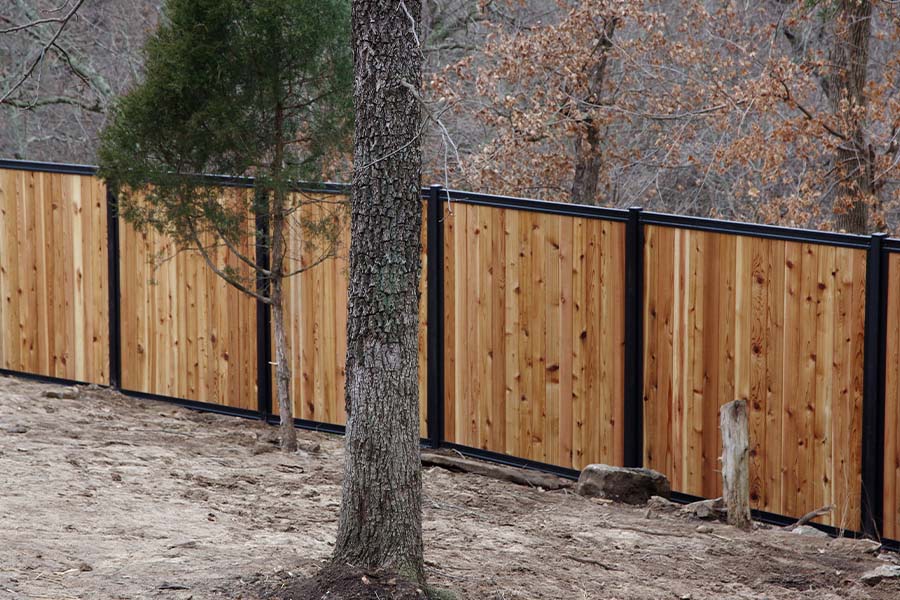All Categories
Featured

Setting up a fence around your property is an excellent means to enhance personal privacy, curb, and safety appeal. Here's a step-by-step overview on exactly how to prepare your residential property for a fencing installment.
- Determine Your Residential Property Lines. Before you begin any job, it's important to know where your building lines are located. Building a fencing on or over your home line can cause disputes with next-door neighbors or also lawful concerns. You can identify your property limits by assessing your deed, home survey, or making use of a map from your regional region workplace. If you're uncertain regarding the precise boundaries, take into consideration hiring a specialist land surveyor to mark your residential or commercial property lines accurately. This action will certainly ensure that your fence is set up in the appropriate area.
- Inspect Citizen Zoning and License Requirements. Different communities have differing rules regarding fencing installation. Before you begin digging holes, check with your regional zoning department to identify if there are any restrictions or license needs for fencing installation.
- Clear the Installment Area. Among the most important action in preparing your property for a fence is removing the area where the fence will be set up. Begin by eliminating any barriers, such as rocks, particles, and vegetation, along the suggested fencing line. If there are trees, shrubs, or vines in the method, consider removing them, particularly if they are close to the fencing line. The fence installation process will go much extra efficiently if the location is clear, and the employees will certainly have even more room to dig article holes and install the fence.
- Mark Underground Utilities. Before you start digging, it's crucial to examine for any type of below ground energies that can interfere with the installment. Contact your energy business to have them mark the area of these energies along the fencing line.
- Interact with Your Next-door neighbors. Installing a fencing can influence your next-door neighbors, specifically if it's a shared boundary. This can assist stop misunderstandings and enable you to deal with any type of issues, such as fence height or positioning, that may arise.
- Pick the Right Fencing Style and Materials. Take time to select a fencing layout and material that ideal suits your needs, visual choices, and spending plan. Take into consideration aspects like the style, elevation, and toughness of the fencing. Timber, plastic, light weight aluminum, and chain-link prevail secure fencing materials, each supplying various advantages. Furthermore, think of your lasting upkeep requirements. Timber fences need more maintenance than plastic fencings, which can be a crucial factor if you desire a low-maintenance option.
- Establish a Spending plan. Fencing projects can differ in cost depending upon the size of your property, the kind of materials utilized, and the intricacy of the installation. Before beginning the project, established a reasonable budget that includes the expense of materials, labor, permits, and any type of unforeseen costs. Demand quotes from several specialists to contrast prices and guarantee you're getting a reasonable deal. if you're hiring a specialist fence installer.

- Prepare for Installment Day. When all the preparations are complete, make sure your residential or commercial property awaits the setup group. Supply clear access to the setup website, and keep family pets and kids safely away from the job location. You may also intend to have actually a marked area for the contractors to park their automobiles and store devices during the project.
Final thought. Preparing your building for fence installation can save you time and money over time while making certain the procedure goes smoothly. By identifying your property lines, looking for licenses, removing the setup location, and interacting with next-door neighbors, you'll be setting on your own up for an effective job. Proper prep work is key to an easy fencing installment that boosts the safety and security, personal privacy, and appeal of your residential or commercial property.
Latest Posts
Recognizing When Your Car Needs Professional Auto Repair at Montclare Auto Repair
Published May 28, 25
1 min read
Reputable Commercial Roofing Providers by Weathercraft
Published May 27, 25
2 min read
Why Routine Auto Maintenance at Montclare Auto Repair Reduces Costs
Published May 26, 25
1 min read
More
Latest Posts
Recognizing When Your Car Needs Professional Auto Repair at Montclare Auto Repair
Published May 28, 25
1 min read
Reputable Commercial Roofing Providers by Weathercraft
Published May 27, 25
2 min read
Why Routine Auto Maintenance at Montclare Auto Repair Reduces Costs
Published May 26, 25
1 min read